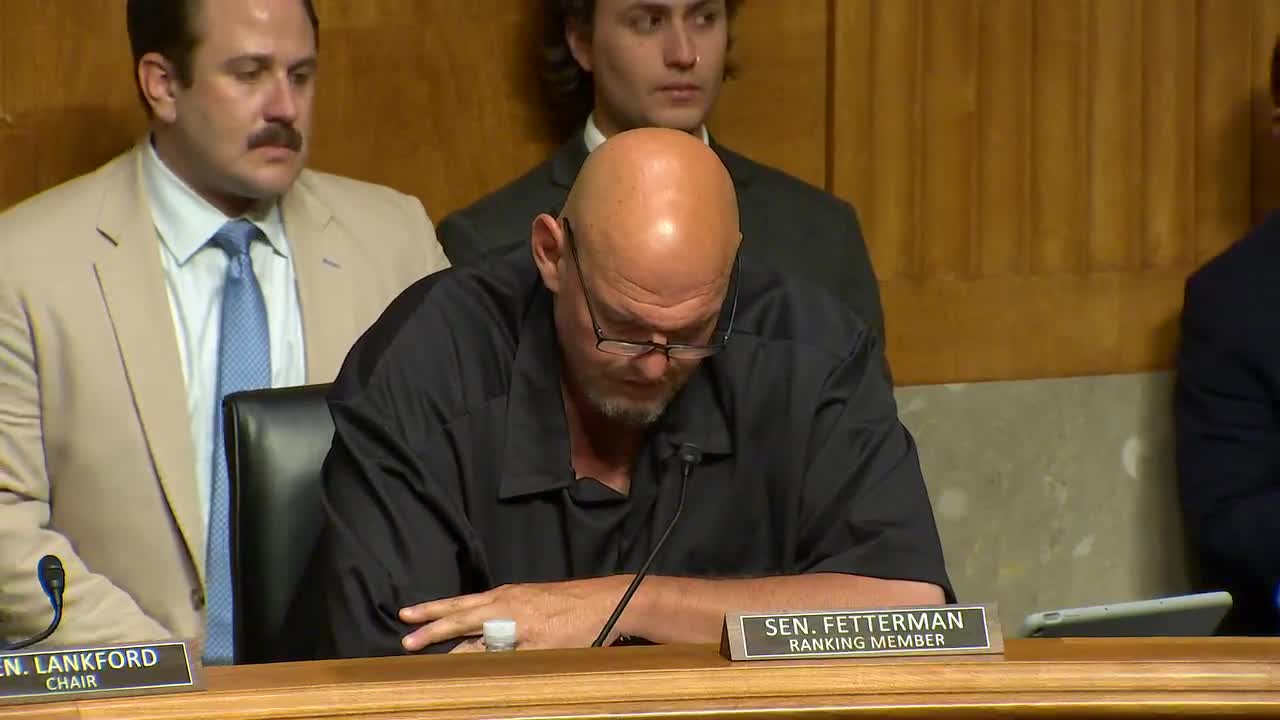Senate Committee Discusses Regulatory Changes After Loper v. Raimondo Ruling
July 30, 2025 | Homeland Security and Governmental Affairs: Senate Committee, Standing Committees - House & Senate, Congressional Hearings Compilation
This article was created by AI summarizing key points discussed. AI makes mistakes, so for full details and context, please refer to the video of the full meeting. Please report any errors so we can fix them. Report an error »

In a pivotal meeting on July 30, 2025, the U.S. Senate Committee on Homeland Security and Governmental Affairs addressed the significant implications of the Supreme Court's recent decision in Loper Bright v. Raimondo. This ruling fundamentally alters how federal agencies interpret their regulatory authority, marking a departure from a 40-year precedent of judicial deference to agency interpretations.
Senator John Fetterman emphasized the urgency of adapting to this change, noting its potential impact on public health and safety, including the quality of drinking water and vehicle safety. He called for clear communication about how these regulatory shifts will affect everyday lives, urging stakeholders to focus on practical outcomes.
Susan Dudley, a witness at the meeting, outlined four key recommendations for Congress to navigate this new regulatory landscape. First, she stressed the importance of agencies clearly interpreting their statutory authority and filtering factual information to inform regulatory approaches. Second, she suggested that Congress should draft less ambiguous laws that clearly distinguish between factual questions, policy decisions, and the nuances in between. This clarity is essential for effective regulation.
Dudley also advocated for periodic evaluations of regulations to assess their effectiveness and suggested that Congress needs additional resources, including a dedicated regulatory office, to enhance legislative clarity and understanding of proposed laws.
Chaz Scrutieri, another expert present, echoed these sentiments, emphasizing the need for Congress to respond proactively to the Supreme Court's ruling. He highlighted the importance of maintaining a balance between legislative intent and agency expertise in regulatory matters.
The committee's discussions underscored a critical shift in the regulatory framework, placing greater responsibility on Congress to ensure that laws are precise and effective. As the landscape evolves, the focus will be on transparency, accountability, and the integration of sound science into policy-making. The implications of these changes will resonate across various sectors, affecting how regulations are crafted and enforced in the future.
Senator John Fetterman emphasized the urgency of adapting to this change, noting its potential impact on public health and safety, including the quality of drinking water and vehicle safety. He called for clear communication about how these regulatory shifts will affect everyday lives, urging stakeholders to focus on practical outcomes.
Susan Dudley, a witness at the meeting, outlined four key recommendations for Congress to navigate this new regulatory landscape. First, she stressed the importance of agencies clearly interpreting their statutory authority and filtering factual information to inform regulatory approaches. Second, she suggested that Congress should draft less ambiguous laws that clearly distinguish between factual questions, policy decisions, and the nuances in between. This clarity is essential for effective regulation.
Dudley also advocated for periodic evaluations of regulations to assess their effectiveness and suggested that Congress needs additional resources, including a dedicated regulatory office, to enhance legislative clarity and understanding of proposed laws.
Chaz Scrutieri, another expert present, echoed these sentiments, emphasizing the need for Congress to respond proactively to the Supreme Court's ruling. He highlighted the importance of maintaining a balance between legislative intent and agency expertise in regulatory matters.
The committee's discussions underscored a critical shift in the regulatory framework, placing greater responsibility on Congress to ensure that laws are precise and effective. As the landscape evolves, the focus will be on transparency, accountability, and the integration of sound science into policy-making. The implications of these changes will resonate across various sectors, affecting how regulations are crafted and enforced in the future.
View full meeting
This article is based on a recent meeting—watch the full video and explore the complete transcript for deeper insights into the discussion.
View full meeting